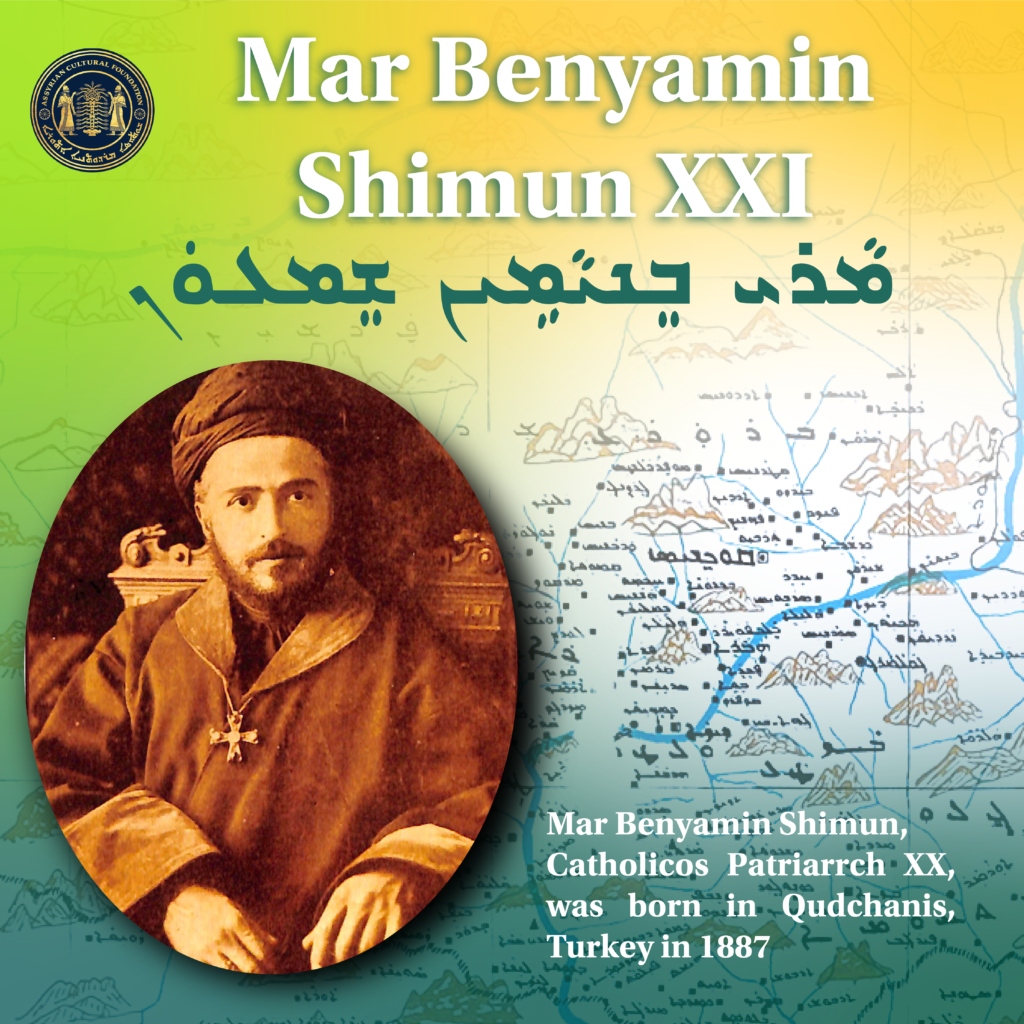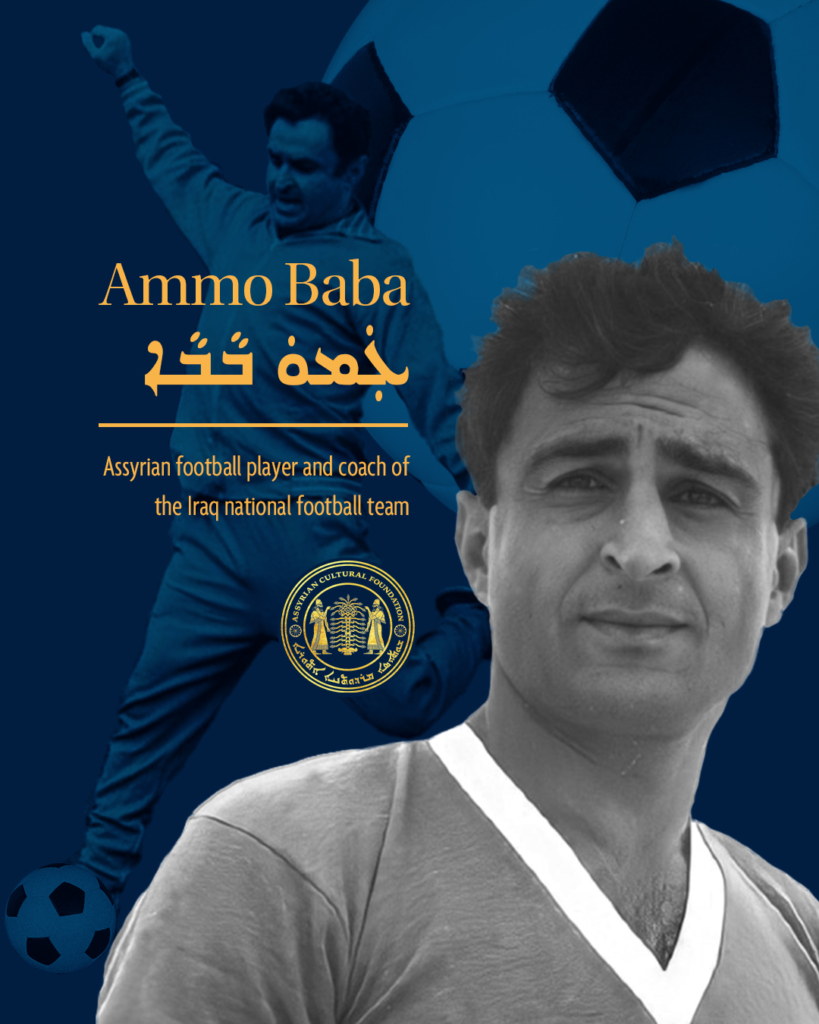Mar Benyamin Shimun XXI
Date: March 11, 2023

Mar Benyamin Shimun, Catholicos Patriarch XXI, was born in Qudchanis, Turkey in 1887. His mother, Asyat, was the daughter of a famous Assyrian chieftain, Qamber of Eeil, and his father, Eshai, was born of the patriarchal line of the Church of the East. Growing up, he received an education from a notable Assyrian scholar from the tribe of Tkhooma. During this time, he learned a great deal about politics and diplomacy.
On March 2, 1903, Mar Benyamin was ordained as a Metropolitan. However, after the death of his uncle, Mar Ruel Shimun, Catholicos Patriarch XX, on March 16, 1903, Mar Benyamin was elevated to the Patriarchal throne on March 30, 1903 at the age of 16. Observers noted that he quickly learned how to conduct himself as a mature leader despite his age, as he was aided by his sister, Surma Khanum.
Years after his consecration, World War I began and reverberated throughout the world and the Middle East. The conflicts between various regional powers place the Assyrian nation in a most difficult position, leading to much conflict and atrocities. With much difficulty, Mar Benyamin took it upon himself to lead the Assyrians of Hakkari out into the safety of Urmi, where they joined their brethren.
Also, he helped many Assyrians escape to Russia after having successful negotiations with Tsar Nicolas of Russia for Assyrian settlement in their residential areas. According to Braum and Winkler, Mar Benyamin accomplished “the transfer of 15,000 of his people into the Caucasus, where they founded a new homeland in the present-day states of Armenia and Georgia.” In 1917, Mar Benyamin was decorated by the Russians who wanted to show their appreciation to the Assyrians for helping them in their fight. In 1918, Mar Benyamin was assassinated by a Kurdish officer. He was 31 years old.
Mar Benyamin Shimun, Catholicos Patriarch XXI, embodies the true meaning of a hero. His bravery and courage helped many Assyrians find sanctuary in a very turbulent time in history, and for that, we honor him every year.
Published by: Brian Banyamin
Written by: Sarah Gawo
Bibliography
Baum, William, and Dietmar Winkler. The Church of the East: A Concise History. Routledge, 2003.
“He Lived and Died For His Beloved Assyrian Church & Nation.” Assyrian Enterprise, http://www.assyrianenterprise.com/MiscAnnounc/M.Benyamin/MBenyamin.html.
Shoumanov, Vasili V. The Assyrian Martyr: Mar Benjamin Shimun, Patriarch of the Church of the East. Center for the Assyrian Genocide Studies, 2008.
Shumanov, Vasily. “The Patriarch Mar Binyamin Shimmun a Martyr of the Assyrian Nation & The Church of the East.” Zinda, 15 Mar. 2004, http://www.zindamagazine.com/html/archives/2004/3.15.04/.
SyriacPress. “Today in History: East Syriac Patriarch Mar Shimun Binyamin Murdered by Kurdish Chieftain Simko Agha.” SyriacPress, 3 Mar. 2022, https://syriacpress.com/blog/2022/03/03/today-in-history-east-syriac-patriarch-mar-shimu n-binyamin-murdered-by-kurdish-chieftain-simko-agha/.
Werda, Joel E. “A Short Biography of Mar Benyamin Shimun XXI.” Nineveh, 1981.

